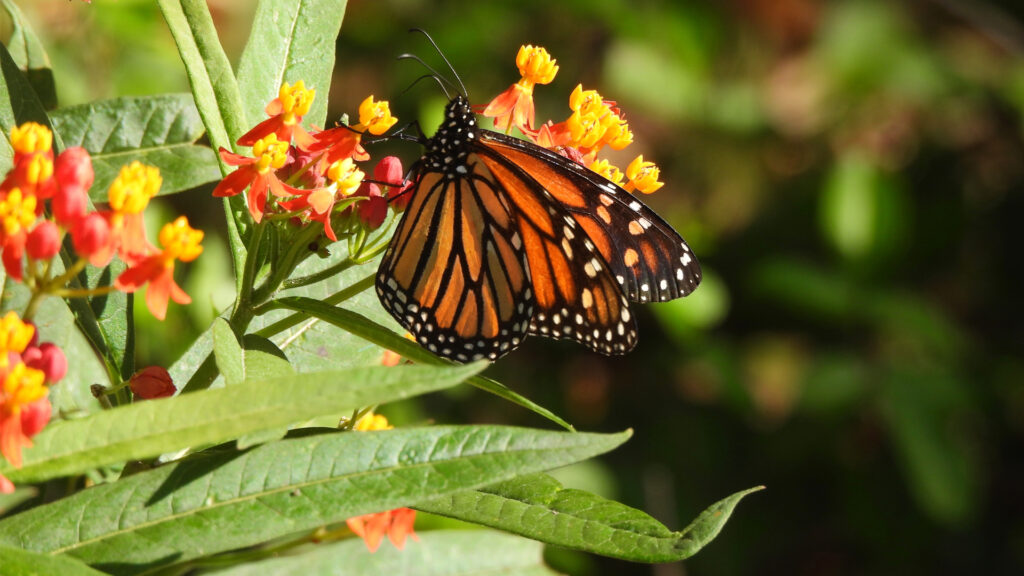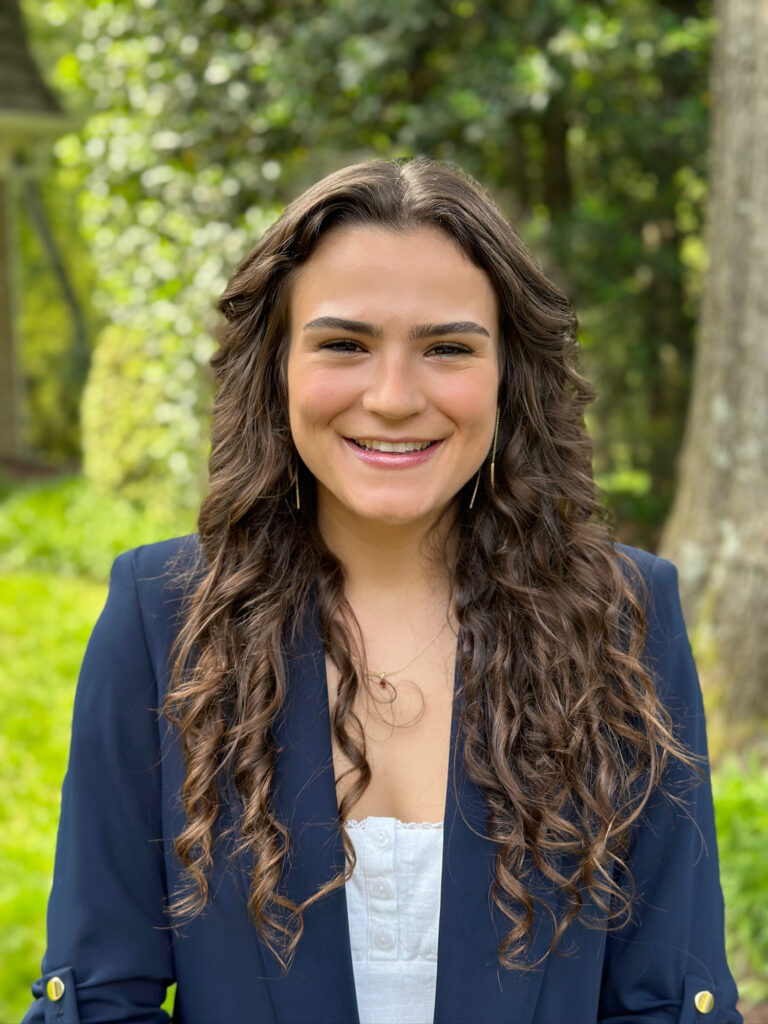By Caroline Wagar, Environment America
Each winter, Floridians are lucky enough to step into their gardens and witness the majesty of monarch butterfly migrations. The colorful black and orange wings dazzle kids and parents alike, as do the fat striped caterpillars that feast on milkweed plants. But an alarming decline in state monarch butterfly populations exposes a larger trend: Florida’s wildlife is disappearing.
The U.S. Fish and Wildlife Service just acted on behalf of the monarchs by proposing that the vital pollinators be protected under the Endangered Species Act. But it will take more than this to help save the monarch butterfly. Luckily, there’s an existing policy to do just that, and we must give it our full support.
Just like manatees huddling in Floridian hot springs during the winter months, eastern monarch butterfly populations congregate en masse in Florida along their annual migratory journeys. Some even stay for the entire winter instead of continuing on to Mexico. Across the state, preservation sites, such as Amelia Island State Park and the Panhandle’s St. Marks National Wildlife Refuge, offer glimpses of the phenomenon.

It’s an inspiring spectacle, but fewer monarchs are spotted as the years go by. It should be a reminder to all of us: Our incredibly important pollinators are fighting just to survive.
Migration for monarch butterflies is already perilous in the best conditions. It takes multiple generations of monarchs to reach their migratory destination with abundant resources. Now, those necessary resources are growing more and more scarce.
Habitat loss and pesticide use are two of the main explanations for the dramatic population decline. Plant-killing chemicals (herbicides) ravage milkweed plants, which are the only food source for monarch caterpillars. Without them, the butterflies that stop to breed in Florida will never complete their journey, and the monarchs who stay won’t have the resources to fill the skies with their young.
Adding to the problem is continued development on vital habitats. Without room to grow, milkweed can’t feed monarchs. Bustling cities disrupt monarch migration routes, access to food and breeding sites that sustain the butterfly’s life cycle. Monarch butterfly populations in the eastern United States have dropped by more than 80%, in large part due to these two factors. But all hope is not lost.
We can help monarchs by supporting an innovative idea that uses an unlikely resource: our roadsides and highways. Many states have taken advantage of the roughly 10 million acres of roadside land nationwide that is readily available for pollinator plants. Texas has planted native wildflowers on roadsides since the 1930s, while you can spot roadside signs in Kentucky promoting its roadside pollinator gardens.

Right now, Congress has a chance to fund similar programs in Florida and beyond through the Monarch and Pollinator Highway Program in the upcoming appropriations bill. While our elected officials have supported the initiative in the past, this year, they’ve failed to give it a dime.
Two of our own representatives will play a big role in this decision. Reps. John Rutherford and Mario Diaz-Balart can take a stand and support this common-sense approach to pollinator habitat conservation. State roadside programs don’t just protect monarch butterflies – they protect all pollinators, such as bees, that more than one-third of our food crops depend on.
The beauty of monarch butterfly migration is a reminder to all Floridians about the interconnectedness of nature. We should all want to live in a world with more butterflies so that flowers can bloom while the skies are filled with fluttering wings.
We must invest in protections for monarch butterflies now, so that nature lovers of all ages can enjoy the sight of these beautiful visitors for years to come.
Caroline Wagar is a federal legislative associate with Environment America. Banner photo: Monarch butterflies (iStock image).
Sign up for The Invading Sea newsletter by visiting here. To support The Invading Sea, click here to make a donation. If you are interested in submitting an opinion piece to The Invading Sea, email Editor Nathan Crabbe at ncrabbe@fau.edu.




A small group of us want to start a Monarch Habitat, growing milkweed on the property. What’s the best way to do that? How do we get started?
This is a great guide to planting milkweed by Environment America. It lets you know how to find the right milkweed, when to plant, and where to plant. I find it very helpful!
https://environmentamerica.org/articles/when-where-and-how-to-plant-milkweed-to-save-the-monarch-butterfly/